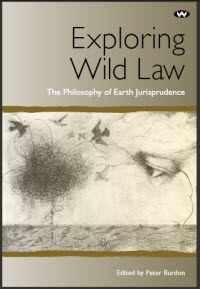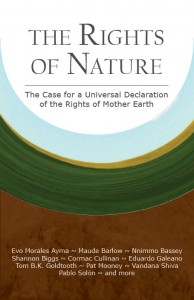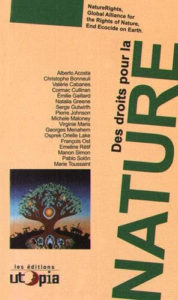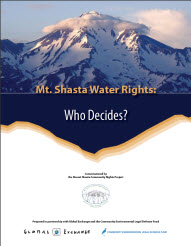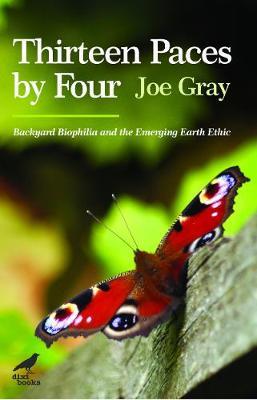Exploring Wild Law, The Philosophy of Earth Jurisprudence
Wild Law is a groundbreaking approach to law that stresses human dependence on nature. For the first time, this volume brings together voices from the leading proponents of wild law around the world.
Exploring Wild Law, The Philosophy of Earth Jurisprudence introduces readers to the idea of wild law and considers its relationship to environmental law, the rights of nature, science, religion, property law and international governance.
Compiled and edited by Peter Burdon, Exploring Wild Law is a collection of essays written by leaders in the field of Earth Jurisprudence! Among the authors are Thomas Berry, Ng’ang’a Thiong’o, Peter Burdon, Cormac Cullinan, Klaus Bosselmann, Linda Sheehan, Mari Margil, Judith E. Koons and many others.
Available through Wakefield Press.
‘Wild law is a gathering force beginning to sweep around the world. This
excellent compendium is a must for all those who wish to practise it.’
– James Thornton, CEO ClientEarth
The Rights of Nature, The Case for a Universal Declaration on the Rights of Mother Earth
Released April 20, 2011 of The Rights of Nature, The Case for a Universal Declaration on the Rights of Mother Earth. This brilliant new book is co-produced by Global Exchange, the Council of Canadians, The Pachamama Alliance, and Fundacion Pachamama.
“The Rights of Nature, The Case for a Universal Declaration on the Rights of Mother Earth gathers the unique wisdom of indigenous cultures, scientists, environmental activists, lawyers, and small farmers in order to make a case for how and why humans must work to change our current structures of law to recognize that nature has inherent rights. It includes essays and interviews from esteemed thought leaders such as Maude Barlow, Vandana Shiva, Desmond Tutu, Cormac Cullinan, Edwardo Galleano, Nimo Bassey, Thomas Goldtooth, and Shannon Biggs.
To order visit http://www.canadians.org/rightsofnature
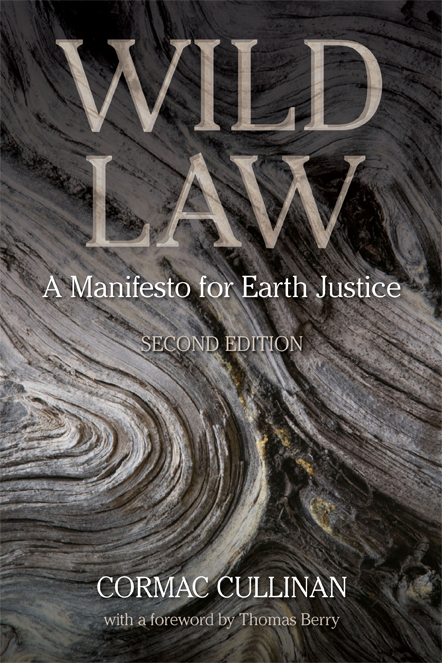 Wild Law: A Manifesto for Earth Justice
Wild Law: A Manifesto for Earth Justice
A newly updated edition of Cormac Cullinan’s seminal work, Wild Law: A Manifesto for Earth Justice was released April 19, 2011 in the US. The new release is NOW AVAILABLE for order through Amazon.com!
This revised second edition includes a new preface, postscript and the Universal Declaration of the Rights of Mother Earth proclaimed on 22nd April 2010 by the People’s World Conference on Climate Change and the Rights of Mother Earth.
“Wild Law is a stimulating, eminently readable response to our governance crisis. The survival of our species and health of the Earth family depends on our ability to transform governance systems so that humans become part of the ecological matrix of biological and cultural diversity. This book is a milestone on that path.”
—Dr. Vandana Shiva, President of the Research Foundation for Science, Technology and Ecology, and author of Staying Alive and Water Wars
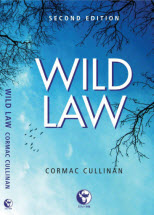 Wild Law 2nd Edition released in South Africa.
Wild Law 2nd Edition released in South Africa.
This revised second edition includes a new preface, postscript and the Universal Declaration of the Rights of Mother Earth proclaimed on 22nd April 2010 by the People’s World Conference on Climate Change and the Rights of Mother Earth.
NOW AVAILABLE: Wild Law eBook.
“This book of Cormac Cullinan explains with great clarity how we can change our entire approach to governance so that we can continue life on a liveable planet. In its basic outlines this book is one of the finest contributions to the entire field of jurisprudence in recent times.”
— Thomas Berry, author of The Dream of the Earth, The Universe Story and The Great Work
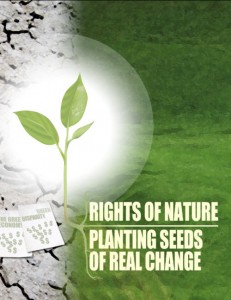 Rights of Nature Planting Seeds of Real Change
Rights of Nature Planting Seeds of Real Change
Global Exchange released a new report for the Rio+20 Earth Summit (June 20th-22nd, 2012), Rights of Nature Planting Seeds of Real Change.
This report takes a look at the flaws behind the Green Economy agenda and explores in depth the ways in which Rights of Nature can be applied as a legal framework to help solve many of the problems currently plaguing the environment.
The report includes articles from leading activists such as former UN Ambassador to Bolivia Pablo Solon, Vandana Shiva, Maude Barlow, Alberto Acosta, and many more.
 Earth Democracy: Justice, Sustainability, and Peace,
Earth Democracy: Justice, Sustainability, and Peace,
by Vandana Shiva, July 1, 2005
A leading voice in the struggle for global justice, Vandana Shiva is a world-renowned environmental activist and physicist. In Earth Democracy, Shiva updates the struggles she helped bring to international attention—against genetic food engineering, culture theft, and natural resource privatization-—uncovering their links to the rising tide of fundamentalism, violence against women, and planetary death.
Among the ten principles of Earth Democracy Dr Shiva outlines are :
– All species, peoples and cultures have intrinsic worth.
– All beings have a natural right to sustenance which is the right to life.
– Earth Democracy is a living democracy.
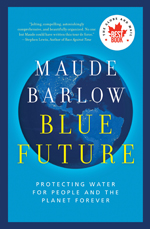 Blue Future: Protecting Water for People and the Planet Forever
Blue Future: Protecting Water for People and the Planet Forever
The final book in Maude Barlow’s Blue trilogy, Blue Future: Protecting Water for People and the Planet Forever is a powerful, penetrating, and timely look at the global water crisis — and what we can do to prevent it.
The global water crisis has dramatically deepened. The stage is being set for drought on an unprecedented scale, mass starvation, and the migration of millions of refugees leaving parched lands in search of water. The story does not need to end in tragedy.
In Blue Future, Maude Barlow offers solutions to the global water crisis based on four simple principles:
- Principle One: Water Is a Human Right chronicles the long fight to have the human right to water recognized and the powerful players still impeding this progress.
- Principle Two:Water Is a Common Heritage and Public Trust argues that water must not become a commodity to be bought and sold on the open market.
- Principle Three:Water Has Rights Too makes the case for the protection of source water and the need to make our human laws compatible with those of nature.
- Principle Four:Water Will Teach Us How to Live Together urges us to come together around a common threat — the end of water — and find a way to live more lightly on this planet.
The final installment in Barlow’s Blue trilogy, Blue Future includes inspiring stories of struggle and resistance from marginalized communities, as well as examples of government policies that work for people and the planet. A call to action to create a water-secure world, it is, in the end, a book of hope.
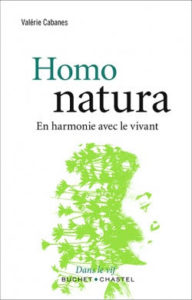 Homo natura, en harmonie avec le vivant
Homo natura, en harmonie avec le vivant
(Buchet/Chastel, 2017) written by Valérie Cabanes
Thanks to favorable climatic conditions and fertile and rich habitats of biodiversity, we have prospered for millennia. However, for two centuries, we have also mistreated the ecosystem that shelters us and feeds us because we evolve as groundless, isolated from the rest of the living, forgetting that we are beings of nature.
We must relearn, like the first peoples, our role as guardians. We must find the path of a harmonious cohabitation with trees, plants and animals but also between us. This approach requires lowering our economic weapons, questioning our relationship with property, limiting state sovereignty, and rethinking democracy. Finally, it requires us to recognize that nature has the right to exist and regenerate. This is how we can guarantee future generations the right to live in a healthy and sustainable environment.
As a preface: a few lines from Edgar Morin, because the ideas expressed in this book resonate with those he defends.
Available on paperback and kindle edition : https://www.amazon.com/Homo-Natura-harmonie-vivant-French-ebook/dp/B075RD7WYC/
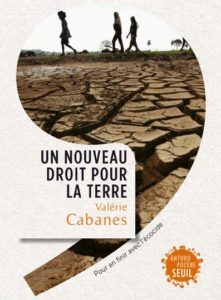 Un nouveau Droit pour la Terre, pour en finir avec l’écocide
Un nouveau Droit pour la Terre, pour en finir avec l’écocide
(Seuil, 2016) by Valérie Cabanes
Ecocide (destroying the “house earth”) is not another crime, adding to all other human rights abuses. It is now the first crime, one that ruins the very conditions of habitability of the Earth.Already, current disruptions are fueling injustices and geopolitical tensions, while the world’s pundits remain unpunished.
It is therefore urgent to demand new forms of responsibility and solidarity. Urgent to redefine a new meaning and new frameworks for human action within the planetary boundaries.International law must be metamorphosed and universalized around a new pivotal value, the Earth ecosystem, by recognizing a fifth international crime, the “crime of ecocide ».
Des droits pour la Nature
(Utopia, 2016 ) by Collective (Author), Samanta Novella (Editor), Emeline Rétif (Translator)
This collective work brings together specialists and theoreticians on rights of nature and law, under the aegis of the Global Alliance for the Rights of Nature, End Ecocide on Earth and NatureRights.
This is a gap in international law: nothing today allows victims of environmental injustices to claim the application of their rights.No sanctions are foreseen for those who threaten the rights of nature while the durability of the conditions of life on earth is at stake.Rights of Nature must grant ecosystems rights to exist that can be claimed in court. They propose recognizing the crime of “ecocide” for the most serious environmental crimes that states and corporations not only allow, but sometimes encourage.These principles make it possible to consider nature as a subject of rights rather than an object. This calls into question our conception of the place of nature in relation to humanity. For there can be no human rights and the rights of current and future generations to enjoy a healthy and viable environment without the recognition of the rights of nature and the emergence of new global governance models.
This book was written in the framework of the third International Tribunal for the Rights of Nature held in Paris in December 2015, in parallel with COP21.
To read the summary, the preface and the introduction> click here
First Rights of Nature writings
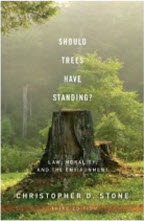
Should Trees Having Standings, Christopher Stone
In this collection of essays on Law, Morality and the Environment, Professor Christopher Stone presents the question, Should Trees Have Standing? Professor Stoneargues that natural objects, such as trees, should have legal rights through the appointment of guardians designated to protect them.
Originally published in 1972, Christopher Stone’s Should Trees Have Standing? ignited a furor and an endorsement by Chief Justice Marshall. Republished in 2010, Stone updates his original thesis and explores the impact of his question and thinking on our judicial system and on society as a whole. Enduring, thought provoking work.
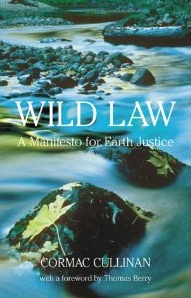 Wild Law, A Manifesto for Earth Justice, Cormac Cullinan – First published in 2002, released in 2011 both in the United States and South Africa. Additional information is provided with recent publications above.
Wild Law, A Manifesto for Earth Justice, Cormac Cullinan – First published in 2002, released in 2011 both in the United States and South Africa. Additional information is provided with recent publications above.
Thomas Berry: Selected Writings on the Earth Community (Modern Spiritual Masters), by Mary Evelyn Tucker (Editor), John Grim (Editor), November 10, 2014
The Dream of the Earth, by Thomas Berry, October 1, 2006
The Great Work: Our Way into the Future, by Thomas Berry, November 14, 2000
The Rights of Nature: A History of Environmental Ethics (History of American Thought and Culture), by Roderick Frazier Nash November 15, 1989
Rights of Nature Related Reports
Mt. Shasta Water Rights, Global Exchange, Fundación Pachamama, Council of Canadians
Mt. Shasta, California took a stand for protecting the Rights of water aquifers and the right of the community of Mt. Shasta to decide what happens in their community.
Be The Change, How to Get What You Want in Your Community
Reconocimiento de los Derechos de la Naturaleza Ecuador, Fundacion Pachamama
La Naturaleza, una nueva persona jurídica, Manuel Aldaz
Recommended books:
The Rights of Nature, A History of Environmental Ethics, Roderick Frazier Nash
 The Dream of the Earth, Thomas Berry
The Dream of the Earth, Thomas Berry
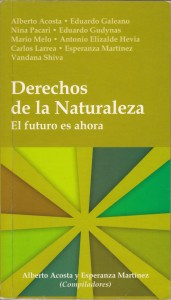 Derechos de la Naturaleza, El futuro es ahora, Alberto Acosta y Esperanza Martínez
Derechos de la Naturaleza, El futuro es ahora, Alberto Acosta y Esperanza Martínez

El Mandato Ecológico, Derechos de la Naturaleza y políticas ambientales en la nueva Constitución, Eduardo Gudynas
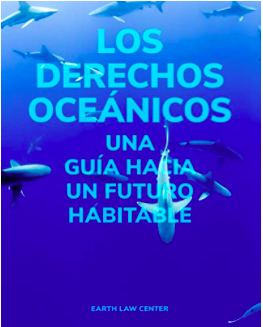
“Los Derechos Oceánicos: Una Ruta Hacia un Futuro Habitable (Spanish Edition) Kindle Edition is now available on Amazon in english and spanish- at only $1.99 for the first 2 weeks! You can not only learn about the movement and the ocean, but support ELC by purchasing, sharing and leaving a review today!
Click below for spanish and here for english: https://amzn.to/33UowIk
Thirteen Paces by Four, Joe Gray

